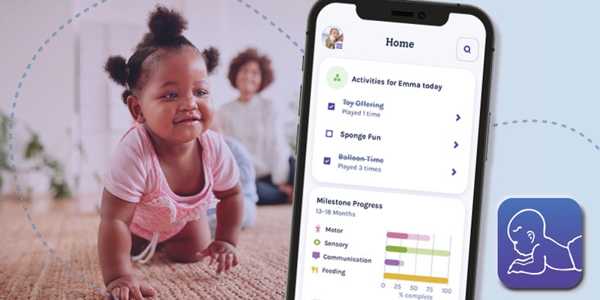Health & medical treatment
How to Stay Safe With Online Health Consultations
A good portion of the population seeks medical advice through virtual consultations, making the process more convenient and faster. However, some remain skeptical due to concerns about safety, privacy, and quality of care. Whether it’s your first or hundredth time using telemedicine, it’s important to navigate it safely.
A good portion of the population seeks medical advice through virtual consultations, making the process more convenient and faster. However, some remain skeptical due to concerns about safety, privacy, and quality of care. Whether it’s your first or hundredth time using telemedicine, it’s important to navigate it safely.
Doctors running in-person clinics can better assess patients than those holding video calls, as online consultations lack physical exams. However, they eliminate contact-based germs, especially during health crises. With no physical contact, both patients and providers must work to ensure clear communication and avoid missing crucial information.

Examining the Digital Health Space
The increase of online consultations is supported by existing evidence, which indicates that these services are safe and effective when used correctly. Randomized controlled trials comparing video consultations to in-person visits have also shown dialed patients with chronic illnesses achieve similar health results. While these results look good, lived experiences paint a different picture for some. A number of health employees have raised complaints regarding technical problems, breaches of privacy, and in some cases, even virtual examinations leading to misdiagnoses.
For example, some research has suggested that while video consultations tend to yield high diagnostic accuracy rates, problems may be encountered if technology fails or if the patient is unable to express themselves as required. Certain more concealed elements like some degree of body movements or minor physical signs might be discarded. For these reasons, both doctors and patients must change their communication approaches in the context of digital health.
Identifying Possible Threats
Confidentiality remains one of the primary concerns with regards to health consultations via the internet. Inevitably, your health information is of utmost sensitive, and transmitting it, even if it is encrypted, poses some risks. Cyberattacks, hacking, and data breaches are some of the notable issues. This means that there is a genuine need to verify that the platform you use has rigid encryption standards, such as 256-bit encryption, and whether it adheres to HIPAA (United States) and GDPR (Europe) regulations.
Another probabilistic risk is the possibility of meeting with a non-verifiable or incompetent healthcare practitioner. Even though many online practices have specialized platforms that make sure that the online physicians are verified, some practitioners may not follow the same standards that are expected from conventional clinics due to the lower barrier to entry for online practices. This can create circumstances where online consultations are done without the information being fully trusted.
Though usually trivial, technical problems might also interrupt the conversation during a consultation. Internet problems, poor video quality, and software problems can directly lead to misunderstanding. In many instances, these issues can postpone follow up meetings or lead to no conclusion being reached during the assessment, hence it is important to know what to expect before the appointment.
Precautions for Staying Safe
Almost everyone has been a part of an online conversation in some form regarding their medical history and concerns. Taking into consideration the sensitive nature of this procedure here are ways of making it as safe as possible:
Check Credentials:
Always ensure that the person attending to you has a valid and up-to-date medical license. Almost all reputable telehealth providers offer profiled portals where one can view a person’s qualifications, work background, and even patient reviews.
Look for Security Standards:
Before booking a session look at the website’s privacy policies. Try and determine if they use robust encryption and other advanced measures that are standard for relevant data protection. You can trust the website when it provides clear steps on how your information will be protected.

Have an Encrypted System:
When talking about sensitive health issues, do not use public Wi-Fi networks. Switch to a private, secure network. This greatly reduces the risk of data interception.
Get Ready for Your Session:
Jot down notes that include your symptoms, relevant medical history, and any questions you might have beforehand. These notes can serve as guidance, especially in cases where patients are cut off due to technical issues.
Talk About Other Steps:
Since virtual sessions might miss out on minute details, inquire about other follow-up steps that you can take. Sometimes an in-person appointment can be essential to rule out any uncertainty’s.
Stay Informed:
Any adjustments to regulations regarding telehealth or new safety features that may be added to the consultation platform ought to be monitored closely. It is wise to remain informed, as this is a great way to defend against potential risks.
Trust Your Instincts:
If there is anything that raises suspicion during the consultation or with the advice provided or how the platform is utilizing your personal information, feel to ask questions and seek further clarification. Above all, your comfort and safety matters.
Comparing Online and In-Person Consultations
When considering the advantages provided by virtual consultations, they can be deemed as greater than face-to-face meetings. However, in-person appointments have the added benefit of being able to conduct a physical examination of the patient which may at times be essential in diagnosing certain conditions. There is much that can be left out on video. A doctor has to utilize their trained eyes and hands to notice details that can be missed over video.
In comparison to traditional methods, online consultations are far better in terms of convenience. For people residing in rural places or having trouble moving around, virtual visits can make healthcare location agnostic and less time consuming. Also, in times of infectious outbreaks, there is no benefit to sitting in crowded waiting rooms as this puts you at a greater risk of catching or spreading illnesses.
At the same time, the shortcomings of telemedicine services emphasize the responsibility of patients to take care of their health. For instance, although a video consultation should be enough to control diabetes or hypertension, it falls short in more intricate or urgent situations that require actual physical intervention.
Considerations for Self Advocacy
The changes technology brings to the healthcare sector is not only to make everything easier—it is also to increase self advocacy and take charge of one’s health. Online consultations can help you become a more informed healthcare consumer. The world of the Internet can assist you in personally tracking your symptoms, monitoring the effectiveness of treatment strategies, and even allow you to book appointments for follow-ups without hassle.
However, with empowerment comes self restraint. One must approach the understanding about what can be done in a video consultation with moderation. Many factors that are more intricate or unclear are simply too convoluted for this type of health consultation. These considerations towards the limitations of telemedicine in addition to knowing when to take better care of oneself through in-person clinic visits is crucial.

Providing a Safer Digital Health Experience
As a permanent feature of the health care system, online health consultations will only become more prevalent. This, in of itself, is a sign that there is a heightened focus on safety and quality within healthcare systems. When it comes to safety and reducing the risks that stem from digital healthcare, there are significant steps that should br taken. Ensuring that service providers have proper credentials, and that data is secured, and defining each session of the consultation is prepared leads to a reduction in the risks thag emerge from online healthcare.
These practices should also appertain to healthcare providers and telehealth platforms. Ongoing training for clinicians in digital communication improves technical support – all of which help to bridge the online to offline health care gap. Both service providers and the patient ultimately stand to gain from improved and more secure and effective services, if best practices are adhered to by both parties.
The objective here is simple; it is to make use of the conveniences that come with online consultations without any security restrictions. If the right options are taken and action is not left too late, the digital health world can be navigated effortlessly. The positives should be taken advantage of, and the downsides should be dealt with properly. Remember, it is always more sensible and indeed necessary, to be careful when it concerns your health.
How to Safeguard Yourself While Online Checking for Health Advice
Online consultations can be risk-free, as long as you remain proactive and maintain constant communication with your healthcare professional. This ensures that you’re making the most of technology without compromising on the quality of healthcare you deserve, your sensitive information, and your health.
How do you like this article?





 Latest Posts
Latest Posts





